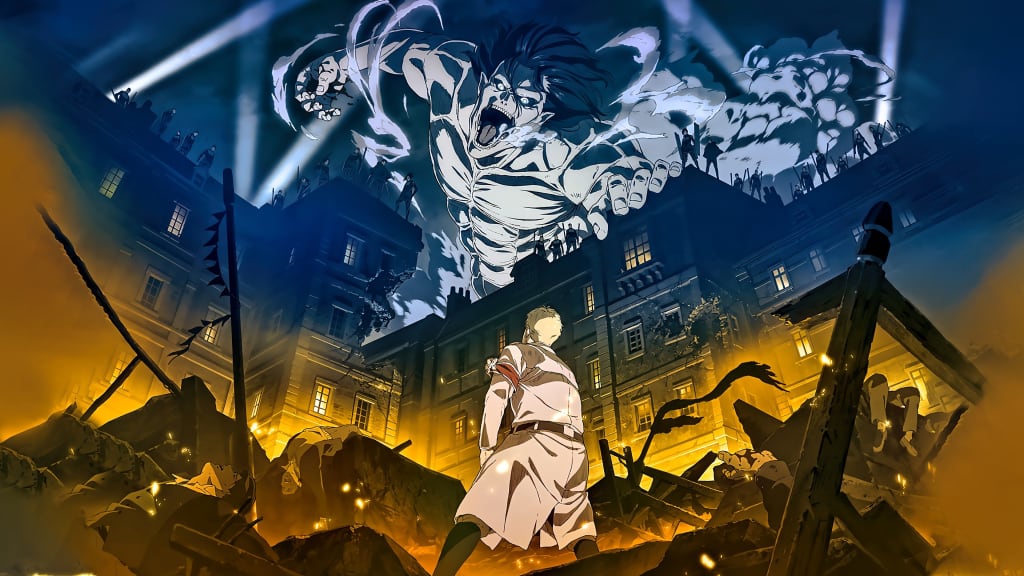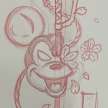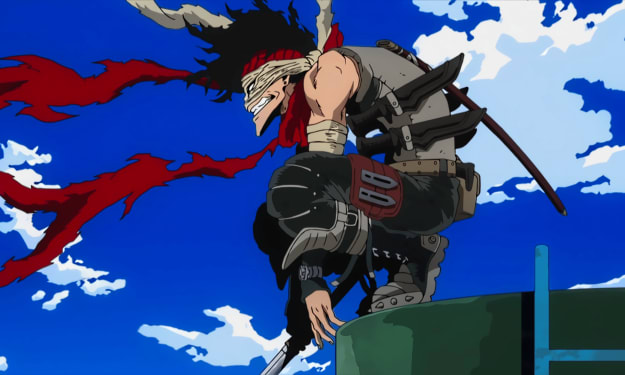The Holocaust Parallel in Attack on Titan
Exploring Themes of Oppression, Dehumanization, and Resistance

Attack on Titan: Final Season, the culmination of Hajime Isayama's epic manga series, has captivated audiences with its intricate narrative, complex characters, and thought-provoking themes. As the series delves deeper into the conflict between the Eldians and Marleyans, parallels to real-world historical events, particularly the Holocaust, become increasingly apparent. Let us explore how Attack on Titan: Final Season evokes the horrors of the Holocaust, examining themes of oppression, dehumanization, and resistance, and the profound impact of these parallels on the narrative and its reception.
One of the most striking parallels between Attack on Titan and the Holocaust lies in the systematic oppression and genocide perpetrated against the Eldian people. In Attack on Titan's world, Eldians are marginalized and demonized by Marleyans, subjected to discrimination, segregation, and ultimately, mass extermination. This echoes the persecution faced by Jewish people during the Holocaust, where they were subjected to dehumanization, segregation, and systematic genocide by the Nazi regime. The parallels between the Eldian genocide and the Jewish Holocaust are evident in the language used to justify oppression, the portrayal of mass incarceration and forced labor camps, and the dehumanizing propaganda employed to vilify the targeted group. Moreover, the portrayal of Eldians as a scapegoat for Marleyan society's problems mirrors the historical scapegoating of Jewish people in Nazi Germany. Both groups are portrayed as "other," blamed for societal ills, and targeted for extermination in the name of purity and supremacy.
Another striking parallel between Attack on Titan and the Holocaust is the dehumanization of the oppressed group, which strips them of their humanity and renders them as disposable commodities. In both contexts, propaganda is used to depict the targeted group as subhuman, monstrous, and inherently dangerous, justifying their mistreatment and violence against them. In Attack on Titan, Eldians are often portrayed as "devils" or "demons," their Titan powers weaponized and exploited by Marleyans for their own gain. This dehumanization is reinforced through propaganda, which portrays Eldians as a threat to humanity that must be eradicated for the greater good. Similarly, Jewish people were dehumanized by the Nazis through derogatory stereotypes, caricatures, and propaganda that portrayed them as vermin, parasites, or subhuman creatures. This dehumanization laid the groundwork for the systematic extermination of millions of innocent lives in concentration camps and gas chambers. The loss of humanity experienced by both Eldians and Jewish people highlights the devastating consequences of dehumanization, which erodes empathy, justifies violence, and perpetuates cycles of oppression and hatred.
Despite the overwhelming odds stacked against them, both Eldians and Jewish people demonstrate remarkable resilience and courage in the face of oppression. In Attack on Titan, characters like Eren Yeager and the Survey Corps defy Marleyan tyranny, fighting to reclaim their freedom and seek justice for their people. Similarly, Jewish resistance movements, such as the Warsaw Ghetto Uprising and partisan groups, defied Nazi oppression through acts of bravery and solidarity, refusing to surrender to the forces of tyranny and hatred. These acts of resistance, though often met with brutal repression, symbolize the indomitable spirit of those who refuse to be silenced or subjugated. The portrayal of resistance in both Attack on Titan and the Holocaust serves as a testament to the power of the human spirit to endure, resist, and overcome even the darkest chapters of history. It is a reminder that, in the face of injustice and oppression, there is always hope for a better future, fueled by the courage and determination of those who refuse to be enslaved by fear and hatred.
The Holocaust parallel in Attack on Titan: Final Season serves as a poignant reminder of the horrors of genocide, oppression, and dehumanization. Through its portrayal of the Eldian genocide, the series evokes the trauma and suffering experienced by those who endured the Holocaust, forcing audiences to confront uncomfortable truths about the depths of human cruelty and the resilience of the human spirit.
Moreover, the Holocaust parallel in Attack on Titan serves as a powerful vehicle for exploring themes of oppression, dehumanization, and resistance, shedding light on the universal struggles faced by marginalized communities throughout history. By drawing parallels to real-world events, the series challenges audiences to reflect on the consequences of hatred, bigotry, and indifference, and the importance of standing up against injustice wherever it may arise.
Ultimately, the Holocaust parallel in Attack on Titan: Final Season serves as a testament to the enduring relevance of history's darkest chapters and the responsibility of storytellers to bear witness to the past, lest we forget the lessons of our shared humanity. As the series continues to unfold, it is our hope that it will inspire dialogue, reflection, and empathy, fostering a greater understanding of the human experience and the importance of justice, compassion, and solidarity in building a better world for future generations.
About the Creator
JRManglicmot
A Striving father and husband, trying to be the best I can be. I'm not perfect, but I try to be the one my family can look up to. I stumble and make mistakes from time to time, most often, but I try to learn from my mistakes.






Comments
There are no comments for this story
Be the first to respond and start the conversation.